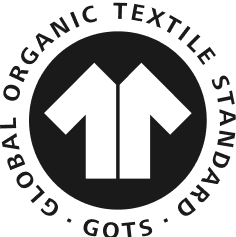
Earthsight Report
The major fashion brands are sourcing cotton from Brazil’s Bahia state, linked to a range of concerning issues including land grabbing, illegal deforestation, violence, human rights violations, and corruption.
The closet
Don't hesitate to open it wide.

The major fashion brands are sourcing cotton from Brazil’s Bahia state, linked to a range of concerning issues including land grabbing, illegal deforestation, violence, human rights violations, and corruption.

OCC and Spoerry 1866 have signed an agreement to consistently market the thread derived from the exclusive organic and regenerative color cotton OCCRegenerative® Brazil. This agreement will not only provide stability to the social project we carry out with Brazilian agricultural communities responsible for cultivating this cotton but also allow for a gradual increase in the number of farmers involved in this project.

With over 30 years of leadership driven by our commitment to sustainability, environmental regeneration, and social impact, OCC has been pioneers in the production of 100% organic and naturally colored cotton. Today, we celebrate a significant milestone in our evolution by announcing our corporate update.

In the modern world, every garment we wear tells a story, but what is the dark tale concealed behind the clothes we don daily? Let’s delve into the realm of fabrics and uncover why that comfortable pajama you adore might not be as healthy as you think. And how organic cotton can offer you a better quality of life.

Amidst the controversy surrounding Bayer’s statements at the Fruit Attraction event, we believe that authenticity and transparency are crucial in regenerative agriculture. At OCC, we are committed to sustainability and regenerative agricultural practices, and we wish to share our perspective and contribution to this important debate.

By Santi Mallorquí, CEO of Organic Cotton Colours. January 2015 marked the first year we obtained cotton fiber from our own network of farmers in sufficient quantities to export and spin in Barcelona. It was a complex process as we had groups of farmers spread across 3 states: Piauí, Paraíba, and Pernambuco, with different communities within each state and a total of 150 farmers collectively. Effective transport planning was crucial to optimize costs, although at that moment, our priority was to manage it within just twelve days—the time I would spend in Brazil. I wanted to return with the certainty that everything had been resolved correctly. The cotton was stored in a warehouse with its large access door blocked, and there was no physical way to remove the bales without tearing down a wall. This was just the beginning of a series of challenges we had to overcome with great enthusiasm. The bales weighed 70 kg and were challenging to handle. Their volume did not allow for a 60-meter journey on foot to the truck. We had to borrow a loading cart from a supermarket to move the bales with some dignity and hire a group of young people to handle the material and load it onto the transport that would take it to the port, where it could be handled with proper forklifts. The next challenge was to issue all the invoices correctly to hire both truck transport and container loading and dispatch within the established deadlines from the Port of Suape, Pernambuco. We spent four days locked in an office. Every two hours, a new obstacle emerged, altering our planned agenda—moments of nervousness and desperation. In the following photo, you’ll see the legal path of the invoices that must be issued for a proper export. The necessary legal requirements are not easy to obtain, requiring the hiring of a specialized company to create a plan (as shown in the photo) and thus avoid surprises like the ones we encountered the first time. I especially remember Gilceu, an independent truck driver with his truck hired by the transport company to take the last material to the port cooperative. At seven in the evening, when we managed to have the truck well-loaded, the transport company canceled its contract by phone. We heard Gilceu shout furiously. He explained what was happening, and reluctantly, we had to empty the entire load and hire another company. Although the truck belonged to a family member, we needed a transport company to hire it for the service. Once again, with much faith and pulling some
Explore
Subscribe to the newsletter and be up to date with the latest news.
© Organic Cottons Colours 1992-2024
© Organic Cottons Colours 1992-2023





EXPLORAR
EXPLORE